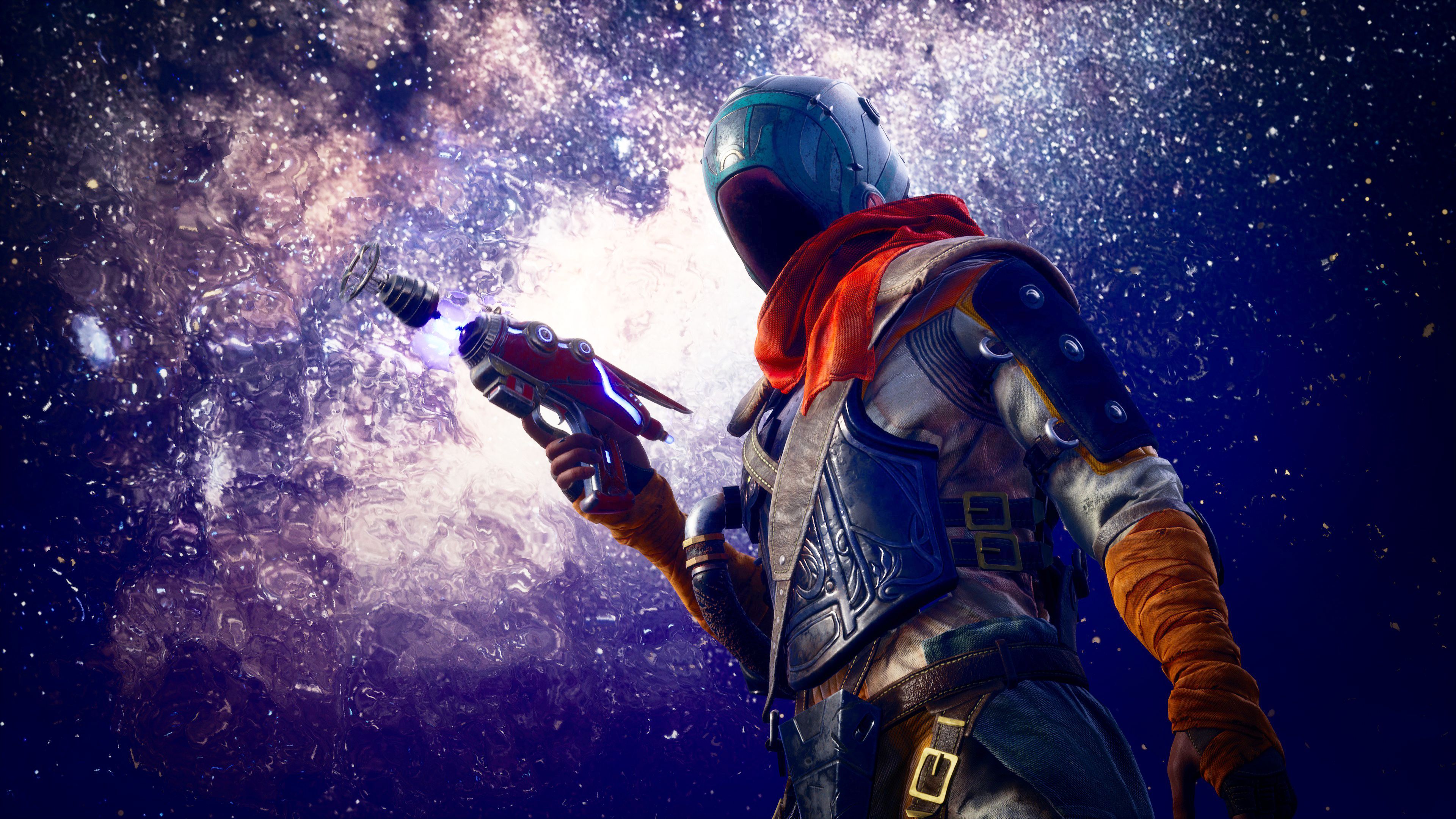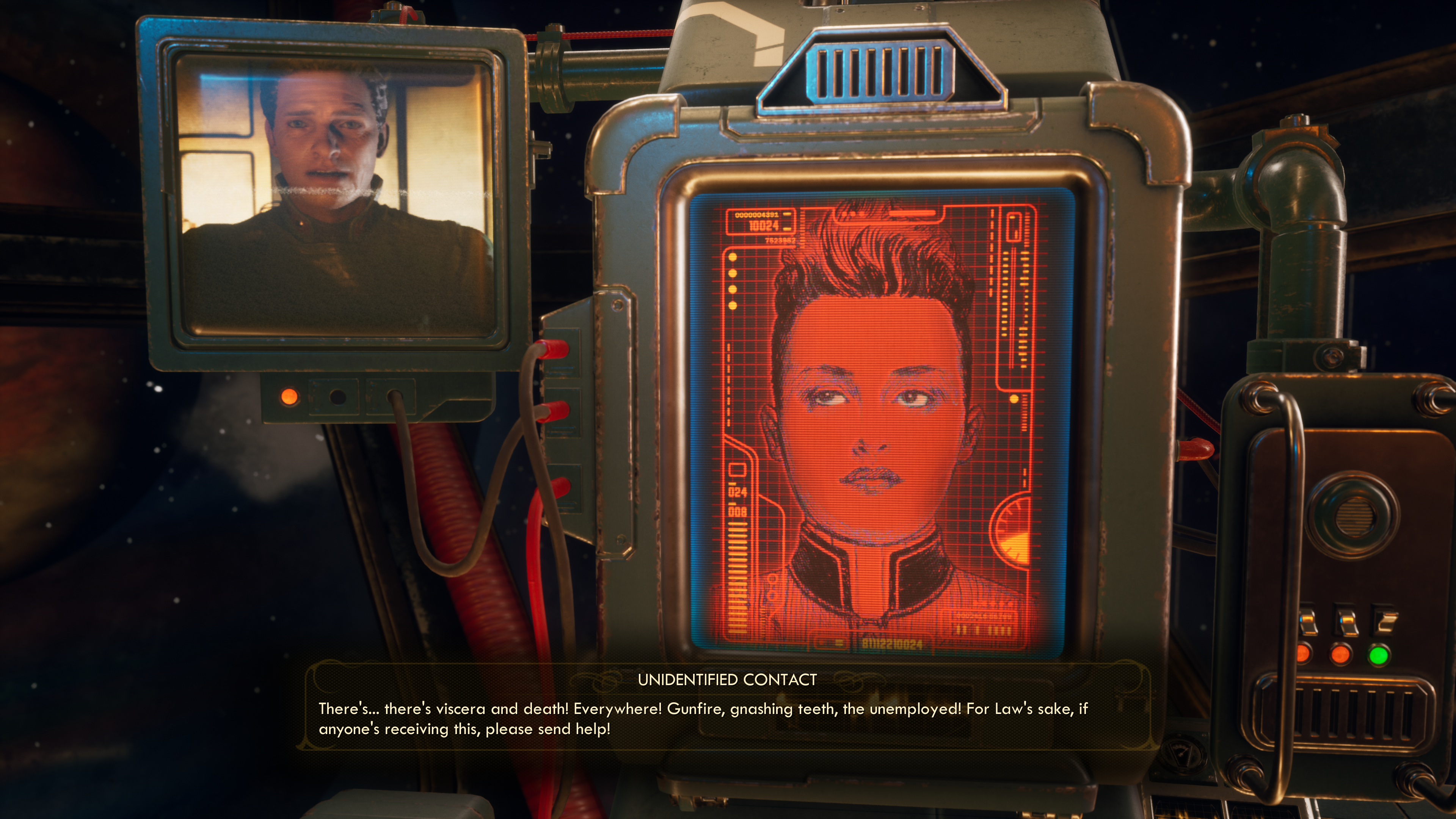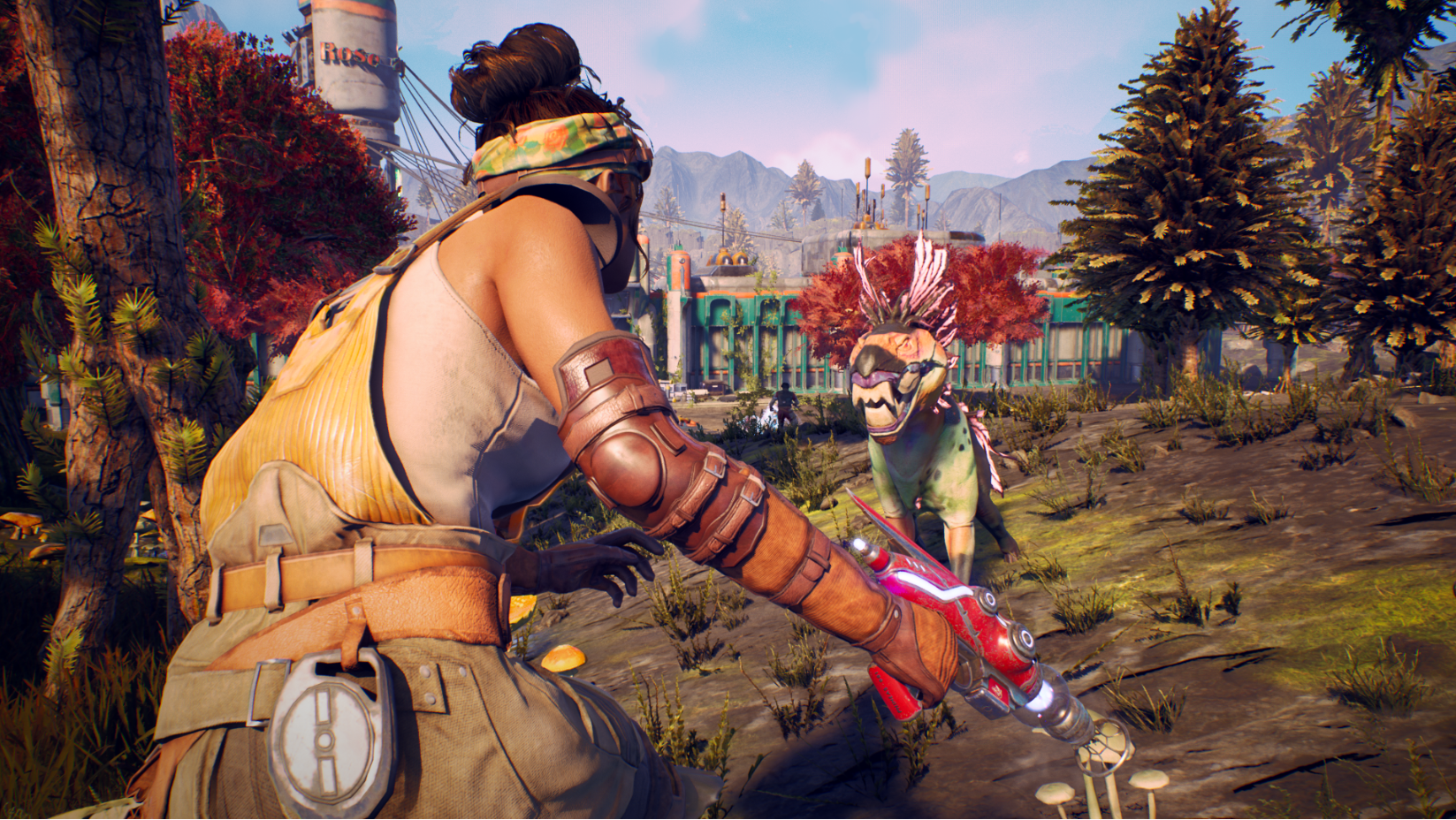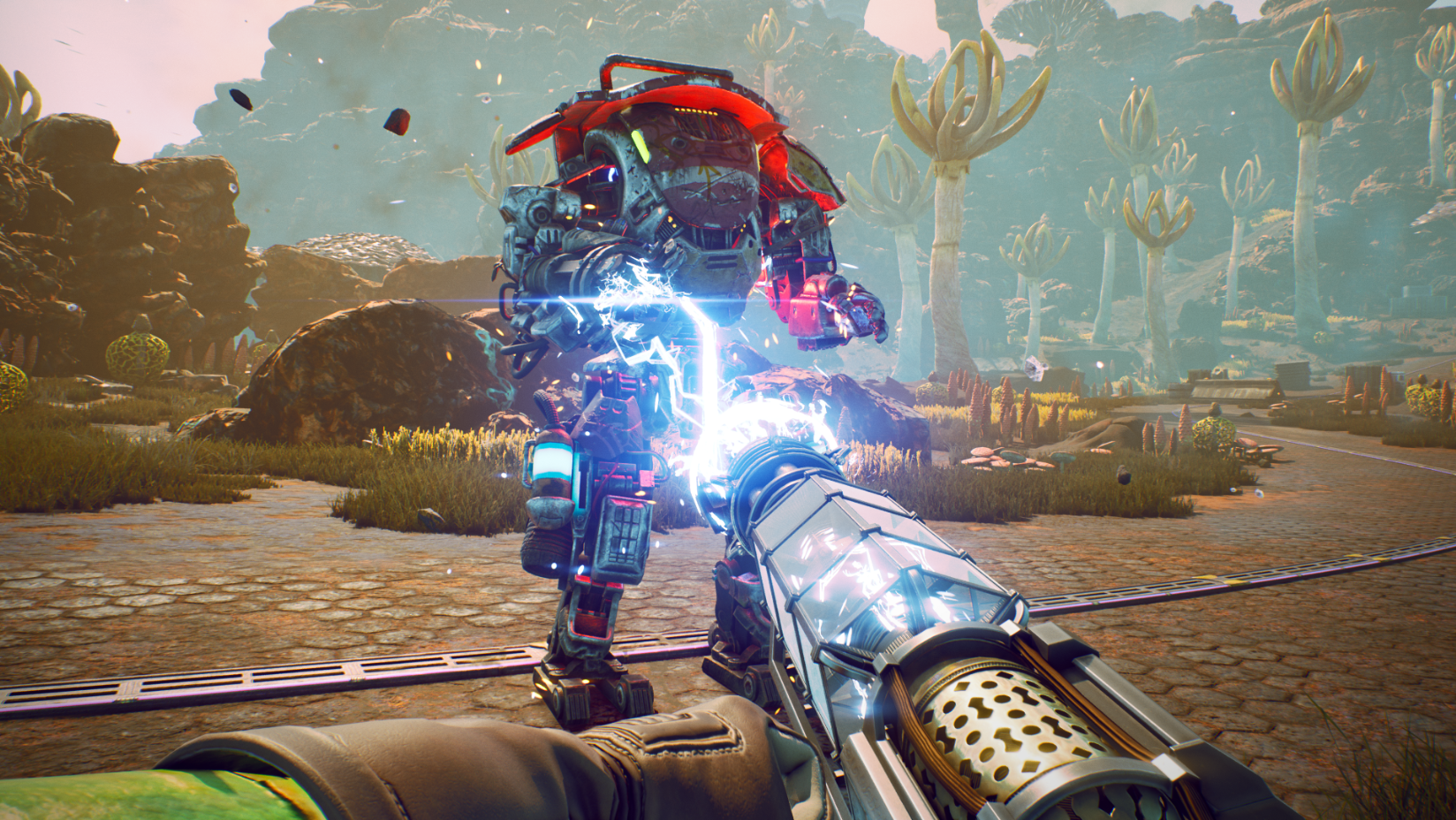All of the right elements seem to have come together to make The Outer Worlds an enthralling game. Tim Cain and Leonard Boyarsky, creators of the original Fallout and Vampire: The Masquerade - Bloodlines, came back together after years apart to direct the project. They did so with Obsidian Entertainment, a studio known for excellent RPGs such as Fallout: New Vegas and Pillars of Eternity. And finally, the game they decided to make was a choice-driven RPG in a niche style that has fallen to the wayside in recent years. Expectations for this game are high because of those things, and The Outer Worlds still manages to deliver an RPG that is even better than the sum of its parts.
The Outer Worlds is truthfully crafted around player choice, even more so than other titles that boast the same idea. Those systems, in gameplay and dialogue, are built on the backbone of an intriguing universe and masterfully written dialogue that is enjoyable and entertaining at its worst and genre-leading at its best. The Outer Worlds is a must-play for any RPG fan and a hallmark example of a systems-driven game that still manages to deliver an awesome narrative.
[pullquote]"The Outer Worlds is a must-play for any RPG fan."[/pullquote]
More than anything else, The Outer Worlds triumphs in its dialogue and the universe it creates. Cain and Boyarsky’s games are known for their industry-leading dialogue and stories, and that trend continues with The Outer Worlds. The Halcyon Colony that encompasses all of the game's planets is in a dystopic state but reached that point thanks to the privatization of space travel rather than the nuclear war of Fallout. As such, this universe feels a lot more tangible and believable than in a lot of other sci-fi, despite the grotesque aliens, suspended animation, and the like. Even though its developers are hesitant to call The Outer Worlds political, it does clearly have a lot to say about the pitfalls of capitalism and the dangers of relying on large corporations that care more about the bottom line than their employees.
It critiques those systems with a sarcastic wit that would be hard for most game writers to pull off, but Obsidian Entertainment managed to do so excellently. I was smirking during almost every conversation in The Outer Worlds due to clever writing that I’d expect more from a good book than a video game. Even when the dialogue is being less coy and more serious, it’s still engrossing. Though the game will still relish in some pulp sci-fi tropes, like a Firefly-esque Vicar that can be recruited into the party, it tackles them from a unique perspective so those ideas never feel repetitive. On that note, all of the companions are quirky and loveable in their own right (Parvati is my daughter and any of you that hurt her will feel my wrath), and their quests contain some of the best dialogue in the whole game.
The stories within The Outer Worlds are all surprisingly dynamic too, depending on the player’s actions. Two specific examples that come to mind when I reflect on that. One was when I killed Ellie’s parents without her in my party. As soon as I got back to my ship, she acknowledged what happened, berated me and quit my party. The other was when I killed an NPC near my ship towards the start of the game on a second playthrough, only to have an entirely new character I hadn’t met before show up and discuss what happened with me. Companions are completely optional as well, but they will impact various stories and quests in unique ways if they are in the party. The illusion of choice is often present in decision-based games, even good ones like Erica, but that is not the case here.
The amount of intricacy in the writing is astounding, and the writers managed to maintain that while injecting their fair share of wit and clever storytelling into the experience. As someone who likes to play charisma or dialogue-based characters in RPGs, I’m used to seeing the cracks in a game's writing show after playing a game for a long time. I never ran into that with The Outer Worlds, even after multiple playthroughs; in fact, I managed to beat the final boss through dialogue alone. The Outer Worlds shows that Obsidian Entertainment has the best writers in the industry, and Microsoft is lucky to have them as a first-party studio now.
[pullquote]"More than anything else, The Outer Worlds triumphs in its dialogue and the universe it creates."[/pullquote]
That amount of choice carries over into gameplay. Though many situations will either work best via stealth or combat, there are many ways to approach them. Like the best of the RPG genre, there are tons of different skills and perks to pour points into and bring one’s character in a variety of directions. My first character was focused on dialogue and the companion-geared leadership role, a unique build that worked surprisingly well. For my second run, I created a character that mainly focused on melee, had perks that activated without companions, and killed most major story NPCs. The Outer Worlds managed to support both without feeling unnatural, which is a major boon for fans of systems-driven RPGs.
The flaw system is a neat, if avoidable, addition that gives riskier players more fleshed out characters, adding another layer onto an already deep game. Having systems for systems' sake can be annoying in RPGs like Greedfall, but each modifiable part of the gameplay ultimately serves the player’s -- for lack of a better word -- role-playing experience in a positive way that results in a feeling of immersion rather than frustration.
Though The Outer Worlds is well-written, it is worth keeping in mind that the game and its world is smaller than what you may be expecting. I was able to clear my first playthrough in under 20 hours, though the typical length when doing more side content should be closer to 30 hours. Its worlds are also segmented, so there is never one truly open area to explore uninterrupted.
The Outer Worlds will be constantly compared to Fallout: New Vegas, and while it stands toe to toe with it from a narrative and gameplay perspective, it is quite different in scope. This game focuses on delivering multiple smaller yet lively and intricate worlds rather than one massive one like in Bethesda’s RPGs. I’ve managed to beat The Outer Worlds multiple times in the couple weeks I have had it, and it wasn’t as much of a time sink as one would think. It still feels fresh and fun to replay though, which is a good sign for a shorter RPG.
The split-up nature of The Outer Worlds also highlights my one true flaw with the package: the loading times. The segmented nature of the worlds meant that I was constantly running into these, even within the same planet, and the loading screens aren’t exactly short. Players that denounce fast travel may not run into this as much, but they really began to annoy me as I was hopping around worlds for late-game sidequest cleanup. The Outer Worlds’ autosaves also have a bad habit of spawning players right before a loading screen rather than right after. It tries to spice things up with loading screens that highlight the player's choices, but even these get repetitive after a bit.
[pullquote]"[The Outer Worlds] rewards player choice and experimentation on a level I have not seen since The Legend of Zelda: Breath of the Wild, and it manages to do so in both gameplay and story."[/pullquote]
Obviously, this segmentation signifies the game’s smaller budget and team. While this doesn’t hurt the narrative or gameplay, it does result in an unavoidable flaw on modern hardware. That is one minor blemish on an otherwise pristine package though, and the loading times are definitely not a good reason to avoid this game. Even if The Outer Worlds isn’t as big as some players are thinking, its quality surpasses all expectations. Surprisingly, it isn’t that buggy, which is a problem that has plagued many Obsidian Entertainment releases.
While saying something like “The Outer Worlds is out of this world” may be low-hanging fruit for a writer, it isn’t a false statement. This game rewards player choice and experimentation on a level I have not seen since The Legend of Zelda: Breath of the Wild, and it manages to do so in both gameplay and story. With the best writing of any game thus far in 2019, any fan of RPGs needs to play The Outer Worlds. And no, The Board totally isn’t making me write th-
The Outer Worlds
- Released
- October 25, 2019
- Developer(s)
- Obsidian Entertainment
- Publisher(s)
- Private Division
- Genre(s)
- RPG
- ESRB
- M for Mature: Blood and Gore, Intense Violence, Strong Language




